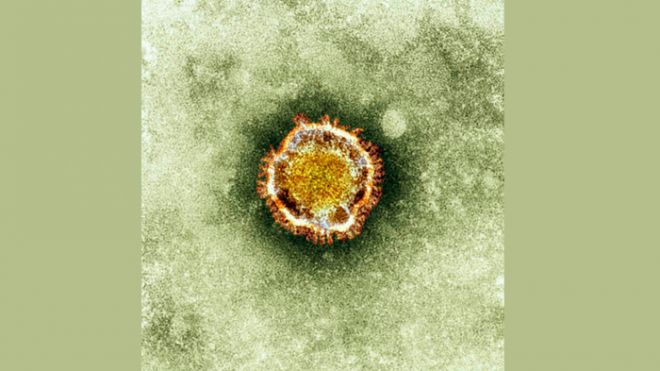
World Health Organization (WHO) officials said on Sunday it seemed likely a new coronavirus that has killed at least 18 people in the Middle East and Europe could be passed between humans, but only after prolonged contact. A virus from the same family triggered the outbreak of Severe Acute Respiratory Syndrome (SARS) that swept the world after emerging in Asia and killed 775 people in 2003. On Sunday French authorities announced that a second man had been diagnosed with the disease after sharing a hospital room with France's only other sufferer. WHO Assistant Director-General Keiji Fukuda told reporters in Saudi Arabia, the site of the largest cluster of infections, there was no evidence so far the virus was able to sustain “generalized transmission in communities” - a scenario that would raise the specter of a pandemic. But he added: “Of most concern ... is the fact that the different clusters seen in multiple countries ... increasingly support the hypothesis that when there is close contact, this novel coronavirus can transmit from person to person. “There is a need for countries to ... increase levels of awareness,” he said. A public health expert who declined to be identified, said “close contact” meant being in the same small, enclosed space with an infected person for a prolonged period. The virus first emerged in the Gulf last year, but cases have also been recorded in Britain and France among people who had recently been in the Middle East. A total of 34 cases worldwide have been confirmed by blood tests so far. NEW DEATHS Saudi Deputy Health Minister for Public Health Ziad Memish told reporters that, of 15 confirmed cases in the most recent outbreak, in al-Ahsa district of Eastern Province, nine had died, two more than previously reported. Saudi Arabia's Health Ministry said in a statement the country had had 24 confirmed cases since last summer, of whom 15 had died. Fukuda said he was not sure if the two newly reported Saudi deaths were included in the numbers confirmed by the WHO. Memish added that three suspected cases in Saudi Arabia were still under investigation, including previous negative results that were being re-examined. The first French patient was confirmed as suffering from the disease on Wednesday after travelling in the Gulf. The second patient was transferred to intensive care on Sunday after the two men shared a room in a hospital in Lille. Professor Benoit Guery, head of the Lille hospital's infectious diseases unit, said the first patient had not been immediately isolated because he presented “quite atypical” symptoms. He added in comments broadcast by BFMTV channel the case suggested that airborne transmission of the virus was possible, though still unusual, and that the public “should not be concerned” as there had been only 34 cases globally in a year. Fukuda, part of a WHO team visiting Saudi Arabia to investigate the spread of the disease, said although no specific vaccine or medication was yet available for novel coronavirus, patients were responding to treatment. “The care that is taken in the hospitals, in terms of using respirators well, in terms of treating pneumonia, in terms of treating complications, in terms of providing support, these steps can get patients through this very severe illness,” he said. Fukuda said that as far as he knew all cases in the latest outbreak in al-Ahsa district were directly or indirectly linked to one hospital. He added that Saudi Arabian authorities had taken novel coronavirus very seriously and had initiated necessary health measures such as increased surveillance systems.source : http://www.foxnews.com/health/2013/05/13/new-sars-like-virus-can-probably-pass-person-to-person-who-says/
